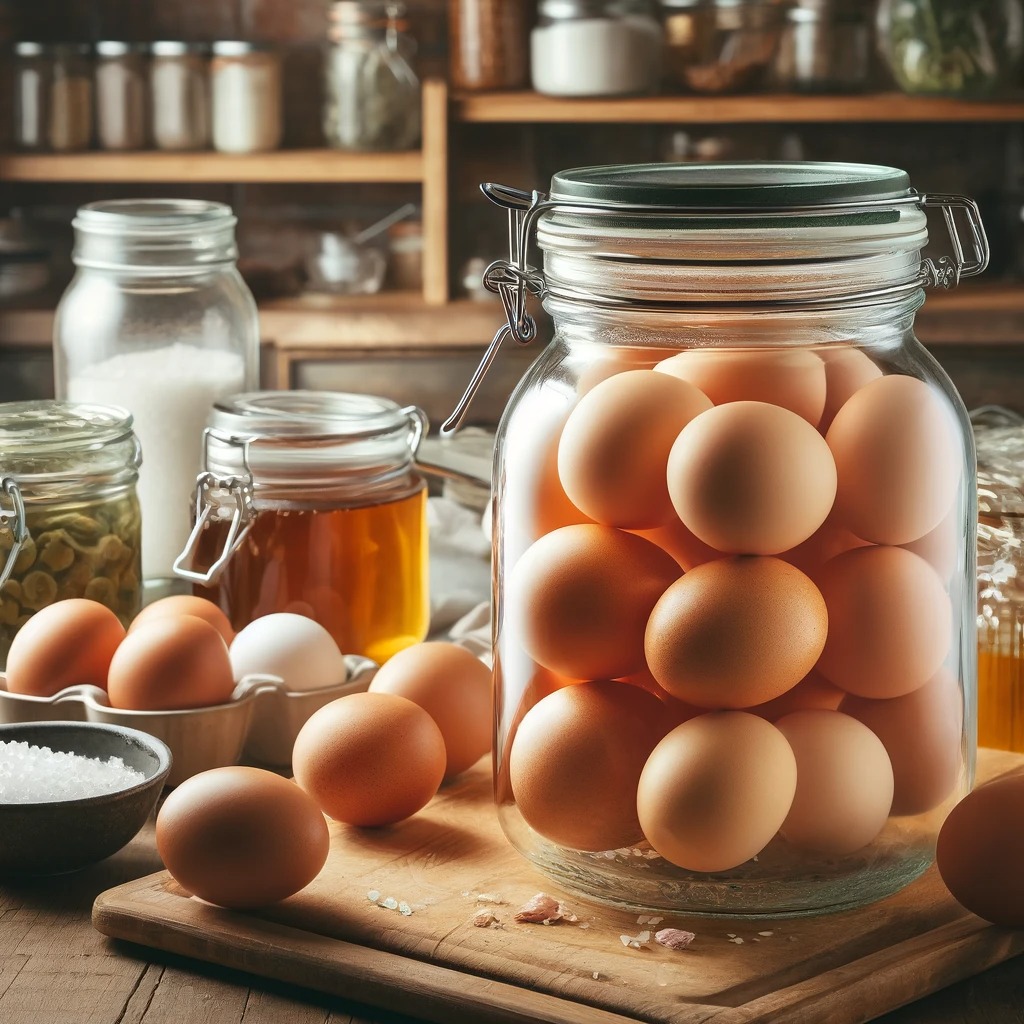ADVERTISEMENT
#### Step-by-Step Instructions:
1. **Prepare the Jar**: Sterilize a clean, dry glass jar with a tight-fitting lid. Again, you can use mason jars or any jar with an airtight seal that will accommodate the eggs comfortably.
2. **Prepare Lime Solution**: Mix **1 tablespoon of slaked lime** per **1 quart (4 cups) of water**. Stir well until the lime is completely dissolved. This solution will create a safe and protective environment for the eggs.
3. **Place the Eggs in the Jar**: Gently place your fresh, unwashed eggs into the jar. Take care to place them gently so that they don’t crack.
4. **Cover with Lime Water**: Pour the lime solution over the eggs, ensuring they are fully submerged. As with the water glass method, leave a bit of space at the top of the jar for expansion.
5. **Seal the Jar**: Close the jar tightly with its lid. Store the jar in a cool, dark, and dry location, such as a pantry or basement. The eggs should be kept at a temperature of about **50–60°F (10–15°C)** for the best preservation results.
6. **Check Periodically**: Like with the water glass method, make sure the eggs stay fully covered by the lime water solution. If needed, add more solution over time.
#### How Long Do They Last?
Eggs stored using the lime water method can last for **up to two years**, but it’s recommended to use them within a year for the best quality. When you’re ready to use them, crack them open, and you’ll find that they are still in great shape for cooking or baking.
—
### **Important Tips for Successful Egg Preservation**
– **Use Fresh Eggs**: Always use fresh, unwashed eggs for preservation. Unwashed eggs have a natural protective coating (the “bloom”) that helps to keep bacteria out and moisture in, making them perfect for preservation.
– **Avoid Cracked Eggs**: Only use eggs that are in perfect condition. Cracked eggs will not preserve well, as bacteria can easily enter through the cracks.
– **Proper Storage**: Ensure that eggs are stored in a cool, dry, and dark place. Exposure to heat or sunlight can reduce their shelf life.
– **Test Before Use**: If you’re ever unsure about the freshness of an egg, perform a simple float test in water. Fresh eggs will sink to the bottom, while bad eggs will float.
—
### Conclusion
Preserving eggs for long-term storage is a great way to ensure you always have fresh eggs on hand, whether for emergencies, seasonal abundance, or just convenience. With these two methods—**water glassing** and **lime water preservation**—you can safely store eggs for up to two years. Both techniques are easy to follow, cost-effective, and yield excellent results. Give them a try, and you’ll be able to enjoy fresh eggs anytime you want, even when they’re not in season!
ADVERTISEMENT
ADVERTISEMENT
